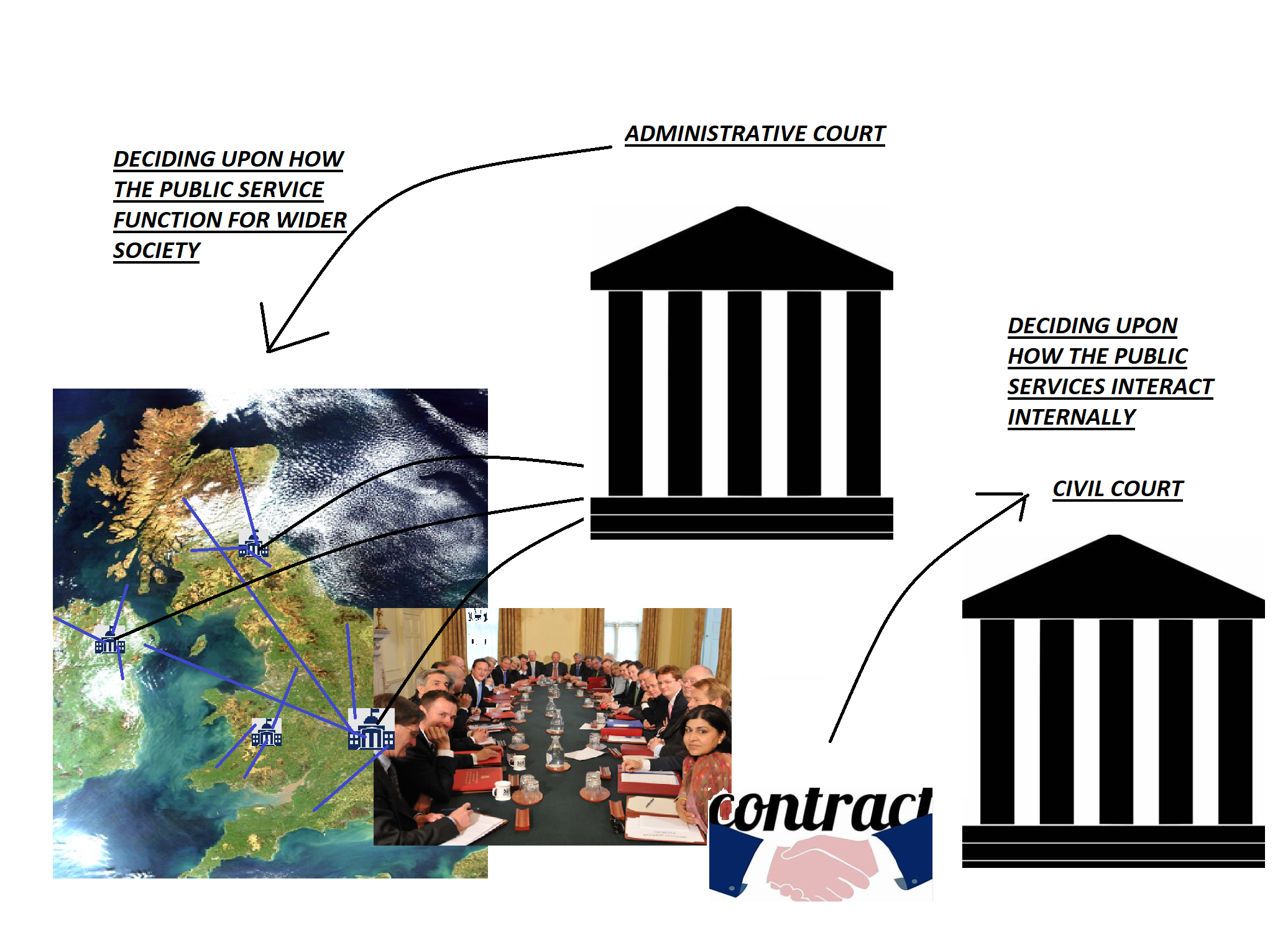Regina v Hull University, ex parte Page, [1992] UKHL 12
Citation:Regina v Hull University, ex parte Page, [1992] UKHL 12
Rule of thumb:Can private law matters be raised as a Judicial Review if it is done by the public sector? No, it is only the actual functioning of the public sector services which can be litigated in a Judicial Review. Private law matters between an individual and the Government have to be raised in the civil Courts, and this includes employment disputes between employees and the public sector acting as an employer.
Background facts:
The basic facts of this case were that Page was given 3 months’ notice that his employment contract was being terminated, and this was a clear term in the agreement which he had agreed to.
Judgment:
The Court affirmed that in order to make a Judicial Review then a public function had to be reviewed. This was not deemed to be a public function, which in this case was the provision of education, so these arguments could not be heard in an administrative Court. The Court further explained the basic features of administrative law. In administrative law quashing the decision and ordering a reconsideration are the most important remedies available. The Court further confirmed that the 3 most important principles for the administration to follow are fair procedures, reasonable decisions and no obvious technical errors of law, and if these 3 basic things are not done then the decision will be declared to be ultra vires with one of the above 2 remedies provided.

Ratio-decidendi:
‘The fundamental principle is that the courts will intervene to ensure that the powers of public decision making bodies are exercised lawfully. In all cases, save possibly one, this intervention by way of prohibition or certiorari is based on the proposition that such powers have been conferred on the decision maker on the underlying assumption that the powers are to be exercised only within the jurisdiction conferred, in accordance with fair procedures and, in a Wednesbury sense, reasonably. If the decision maker exercises his powers outside the jurisdiction conferred, in a manner which is procedurally irregular or is Wednesbury unreasonable, he is acting ultra vires his powers and therefore unlawfully: see Wade on Administrative Law, 6th ed., page 39 et seq. The one possible exception to this general rule used to be the jurisdiction of the court to quash a decision taken within the jurisdiction of the decision taker where an error of law appeared on the face of the record: R. v. Northumberland Compensation Appeal Tribunal [1952] 1 KB 338.... Thenceforward it was to be taken that Parliament had only conferred the decision making power on the basis that it was to be exercised on the correct legal basis: a misdirection in law in making the decision therefore rendered the decision ultra vires... Therefore, I agree with Mr. Burke that in general any error of law made by an administrative tribunal or inferior court in reaching its decision can be quashed for error of law.’ Lord Browne Wilkinson
Warning: This is not professional legal advice. This is not professional legal education advice. Please obtain professional guidance before embarking on any legal course of action. This is just an interpretation of a Judgment by persons of legal insight & varying levels of legal specialism, experience & expertise. Please read the Judgment yourself and form your own interpretation of it with professional assistance.

